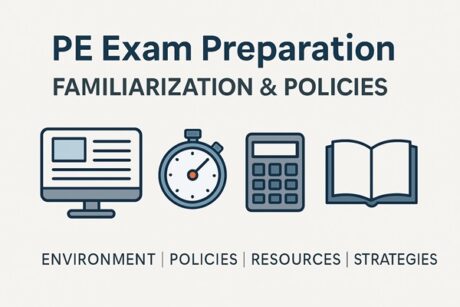- Course No.: E – 2051
- PDH Units: 2
No data found for Custom Course Number
No data found for Custom Course Units
- Course No.: E – 2051
- PDH Units: 2
Intended Audience: All Engineers.
PDH UNITS: 2
This course explores the critical role of mentorship in promoting ethical conduct within the engineering profession. Covered are various aspects of mentorship, including fostering ethical values, transmitting industry norms, and building a culture of accountability. It emphasizes the importance of mentorship in guiding junior engineers toward ethical decision-making and professional integrity. Skills Gained: Participants will develop critical thinking skills, ethical decision-making capabilities, and an understanding of the importance of mentorship in shaping professional conduct. They will be equipped to handle ethical challenges, establish mentorship programs, and foster a culture of accountability and ethical integrity in their engineering practice Intended Audience: This course is general in nature and would apply as suitable continuing education for engineers of all disciplines of practice. List of topics:
- Importance of Mentorship in Ethics
- Fostering Ethical Values and Principles
- Transmitting Organizational and Industry Norms
- Encouraging Critical Thinking and Ethical Reflection
- Building a Culture of Accountability
- Long-Term Professional Development
- The Mentor-Mentee Relationship
- Benefits of Mentorship in Engineering
- Types of Engineering Mentors
- Shaping Ethical Values and Beliefs
- Building a Culture of Accountability
- Ethical Dilemmas in Mentorship
- Addressing Conflicts of Interest
- Handling Mentorship Misconduct
- Establishing Mentorship Programs
- Mentorship Best Practices
- Evaluating Mentorship Success
Learning Objectives
At the successful conclusion of this course, you’ll be able to identify and discuss:- Understand the profound impact of mentorship on ethical values in engineering.
- Learn how to foster a culture of accountability and ethical reflection.
- Recognize the different types of mentors and their roles in ethical guidance.
- Gain insights into handling ethical dilemmas and conflicts of interest in mentorship.
- Acquire strategies for establishing effective mentorship programs within engineering organizations.
Course Reviews
4.7
- 5 stars2
- 4 stars1
- 3 stars0
- 2 stars0
- 1 stars0
Once completed, your order and certificate of completion will be available in your profile when you’re logged in to the site.











Course highlighted aspects of mentoring in the promotion of ethics.
Common sense mostly, but well put together and insightful for engineers taking the step from mentee to mentor. I believe one of the quiz questions is a typo as it deals with transformer boxes…
Good questions and quality course